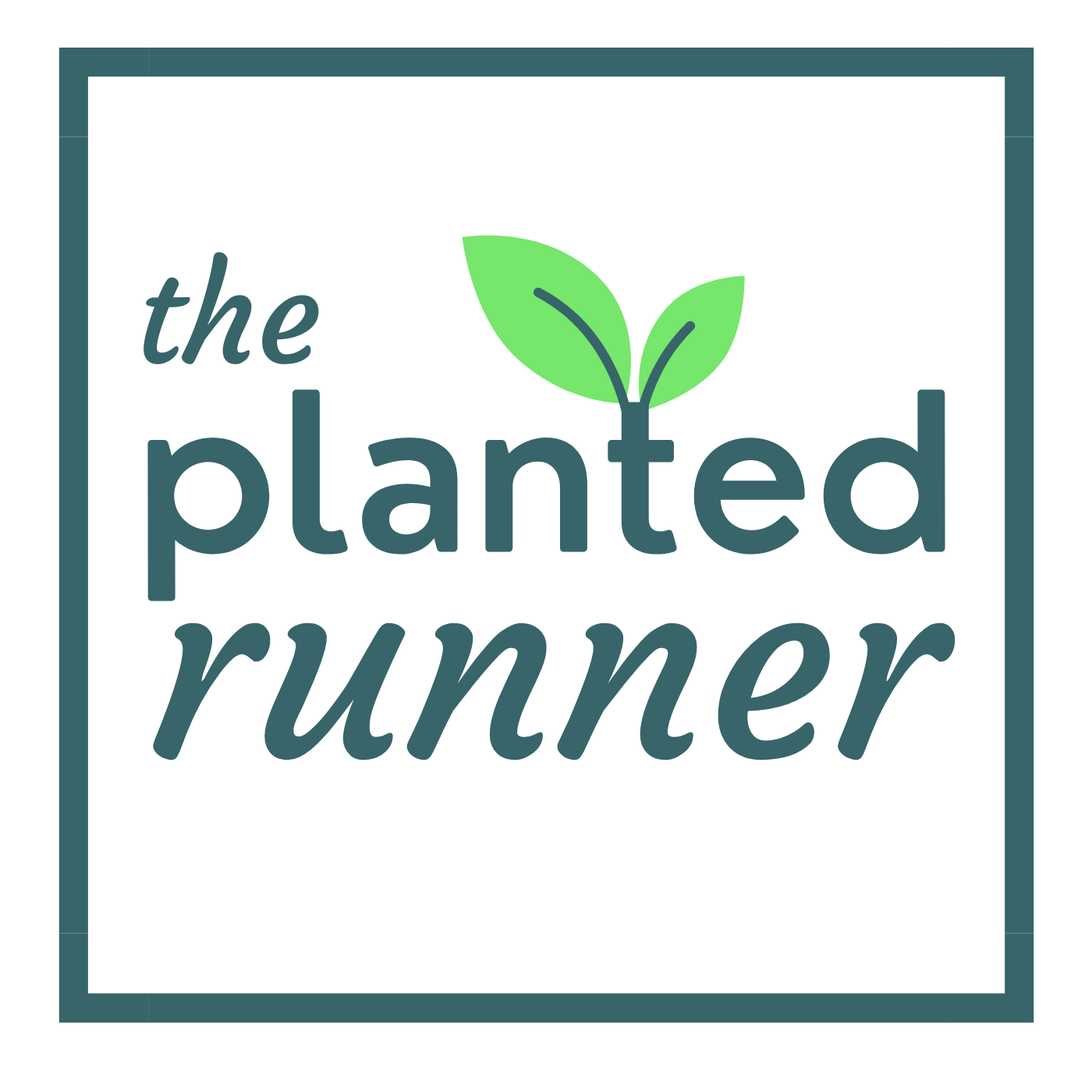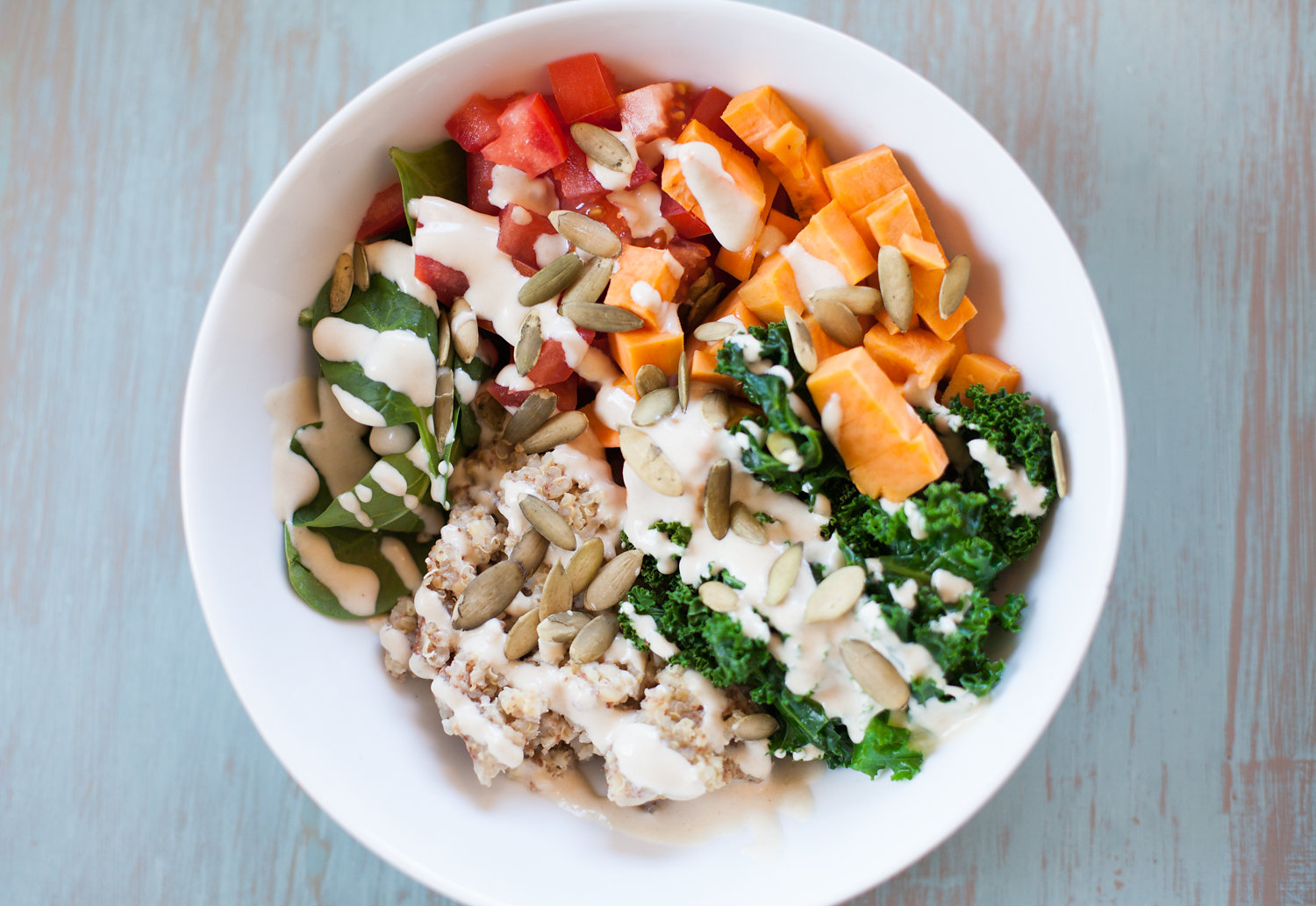Runners need more protein than those who don’t exercise. You might think it’s hard to get enough on a plant-based or vegan diet, but that is a myth if you are paying attention. Here are my favorite plant-based protein foods for runners.
Beans
In a half cup, just about any kind of bean will provide 6 to 9 grams of protein, and not to mention 6 to 8 grams of fiber to keep you full. Beans may also help lower cholesterol and promote healthy gut bacteria. They are also inexpensive and easy to find just about anywhere!
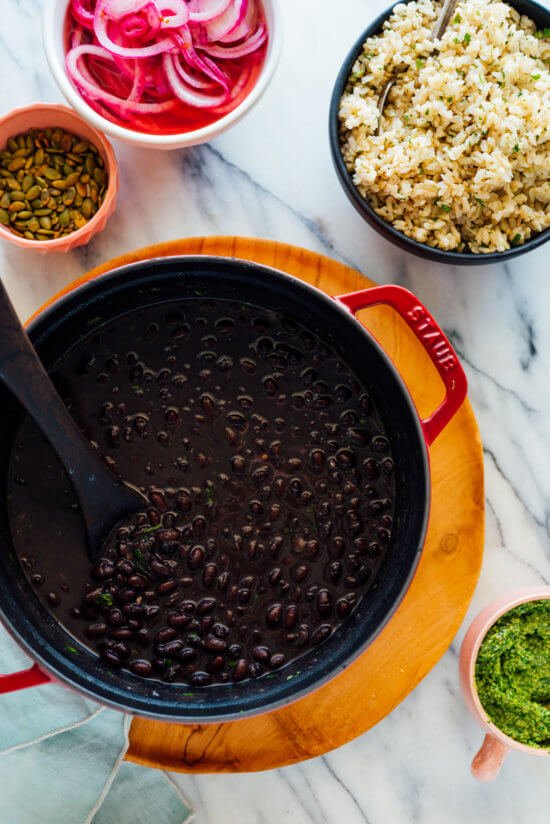
Lentils
The humble lentil doesn’t get enough love! They are so easy to cook (no soaking!) and great to add to curries, tacos, soups, or salads and pack a whopping 12 grams of protein per half cup. Yes, please!
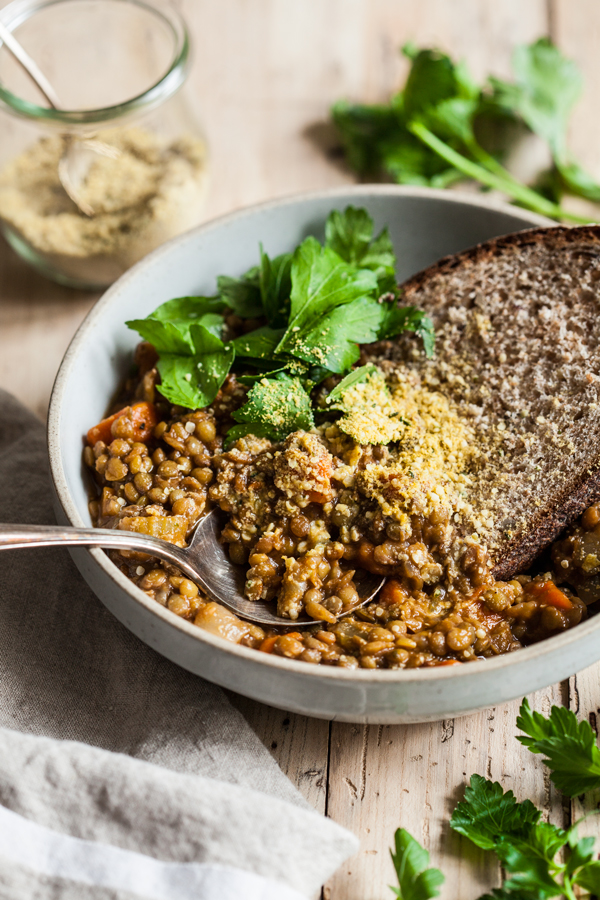
Tofu
I’ll admit, I didn’t really like tofu when I first went plant-based. But that’s because I didn’t know how to cook it! You’ll get 8 grams of protein per 3.5-ounce serving. Look for non-GMO or organic varieties with short ingredients lists.
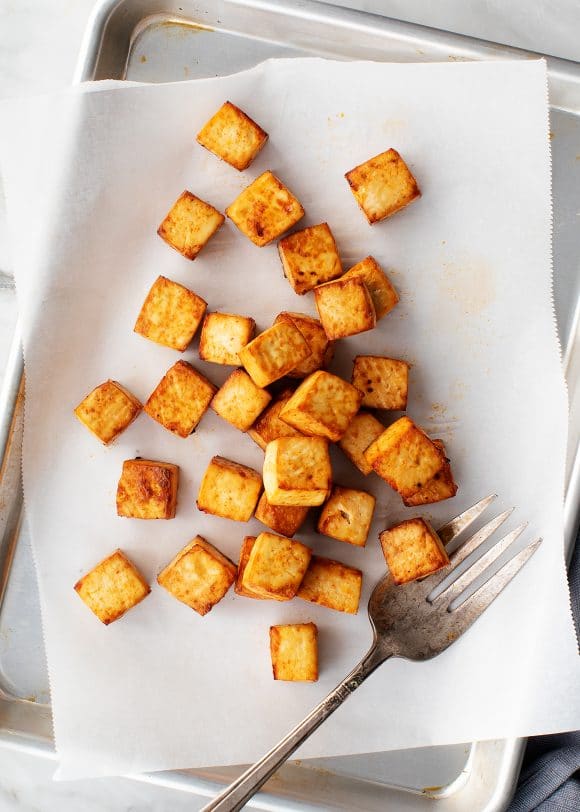
Edamame
Who doesn’t love popping perfectly steamed and salted edamame pods into their mouth? One cup of edamame (not in its shell) packs 18 grams of protein and it’s a complete protein, which means it provides all the amino acids your body needs but can’t make on its own.
Tempeh
Made from soybeans that are fermented and pressed into a block, tempeh is high in protein, prebiotics and other nutrients. Because it’s more compact than tofu, it’s higher in protein — a three ounce serving will give you 15 to 16 grams. Tempeh’s firm but chewy texture makes it a superb addition to sandwiches and salads. Or, crumble it to substitute for ground meat in recipes.
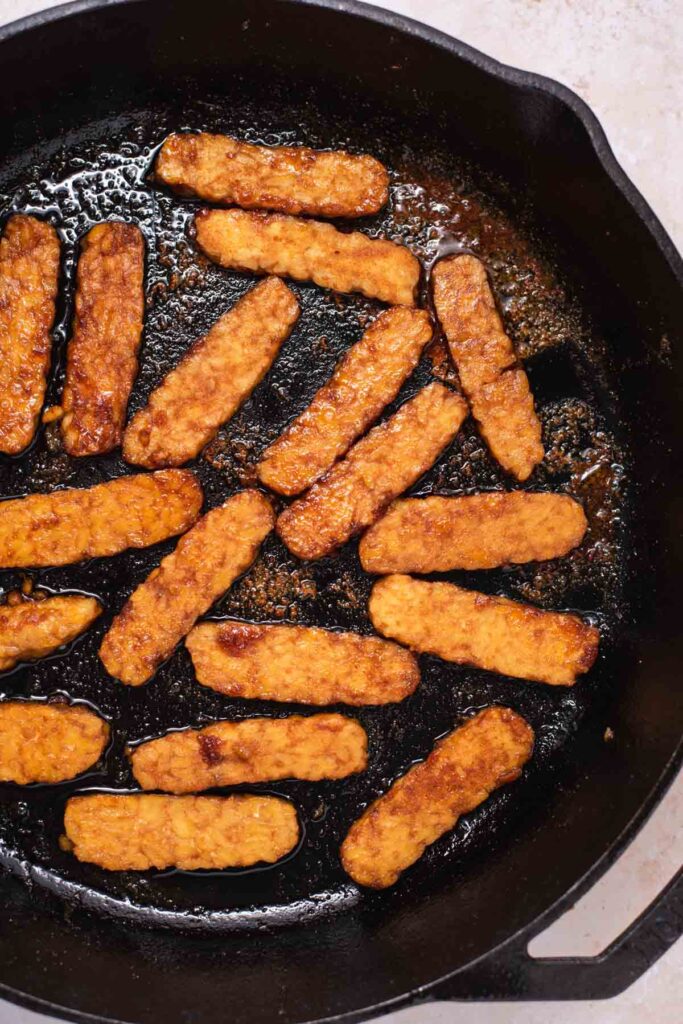
Green peas
The simple pea is a powerhouse of protein! One cup of cooked peas has 8 grams.
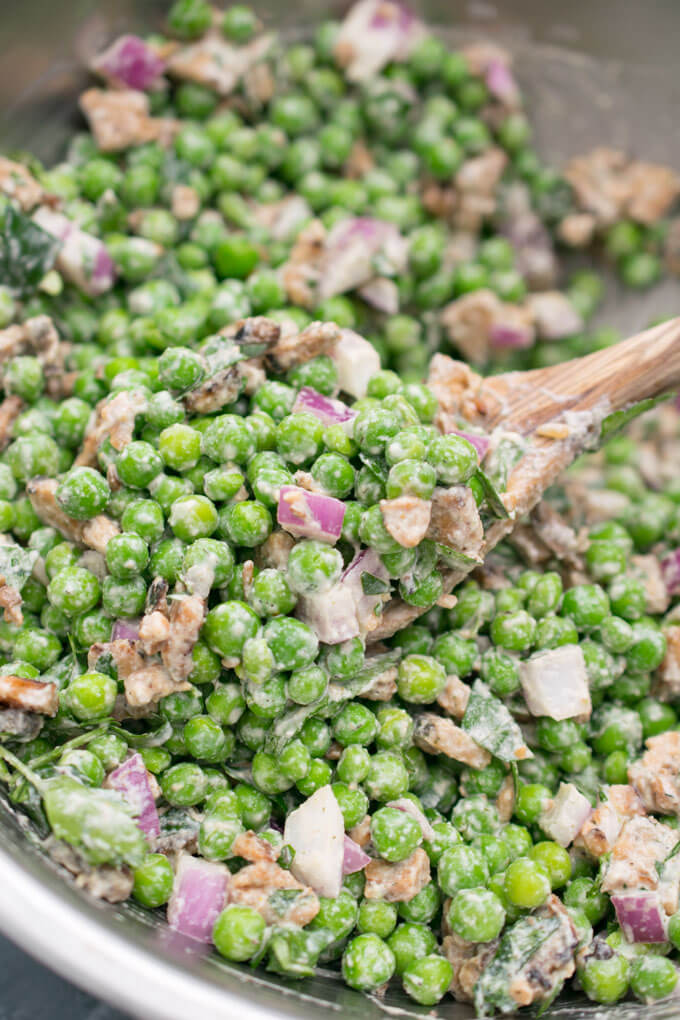
Grains
Yes, grains are primarily carbohydrates, but don’t forget their protein power! A half-cup serving of oats will supply 5 grams of protein to your pre-run breakfast. A quarter cup (uncooked) of barley adds 5 to 6 grams. Teff, millet, amaranth and other ancient grains are also great options to mix up your meals.
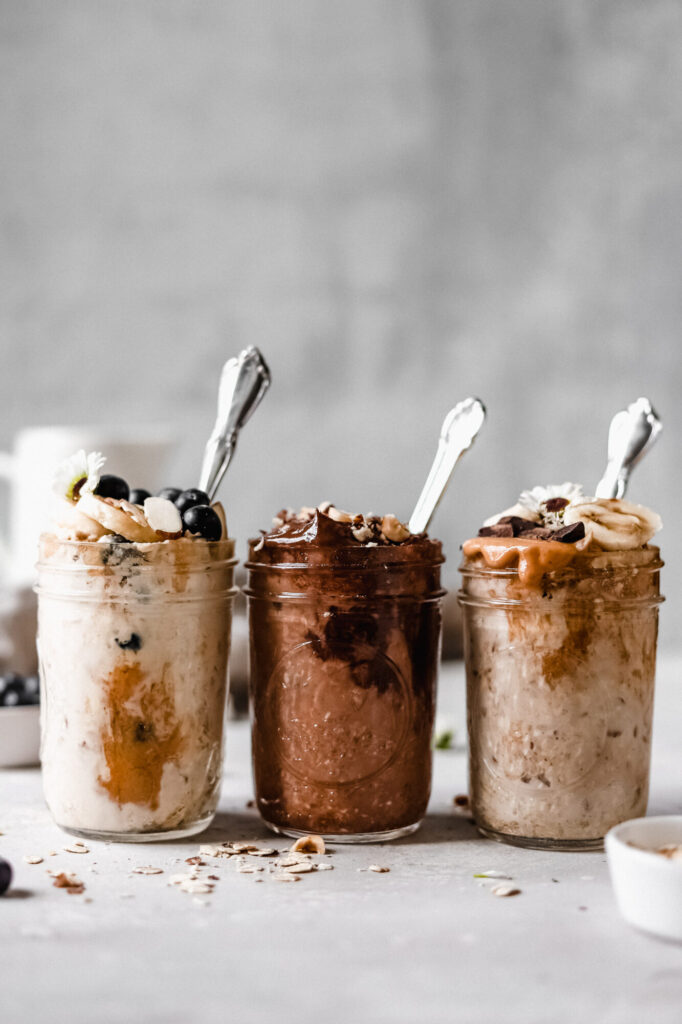
Nuts
Peanuts are technically a legume, but it packs the most protein out of all the commonly enjoyed nuts (9 grams per quarter-cup serving). Almonds and pistachios are runners up (pun intended!) with 7 and 6 grams, respectively. They do contain lots of good fats, so if you need to watch your calories, stick to a small handful.
Seeds
Seeds are a great source of protein and unsaturated fats, and are a savior for those who cannot tolerate nuts. Sunflower seeds have 8 grams of protein per ounce, and pumpkin seeds come in at 7 grams per ounce. Another protein star is hemp seeds, clocking in at about 10 grams per ounce, which are perfect to sprinkle on your morning oatmeal or toast.
Plant-Based Milk
Certain milk substitutes, such as soy milk and pea milk, have nearly as much protein as cow’s milk. Skip the sweetened kind and make sure that your choice is also fortified with calcium and other minerals.
Nutritional Yeast
Nicknamed “nooch” by plant-based eaters everywhere, nutritional yeast is the secret ingredient in many vegan “cheeze” sauces. Nooch is a great source of protein and B vitamins and has a yummy unami flavor. One tablespoon adds two grams of protein.
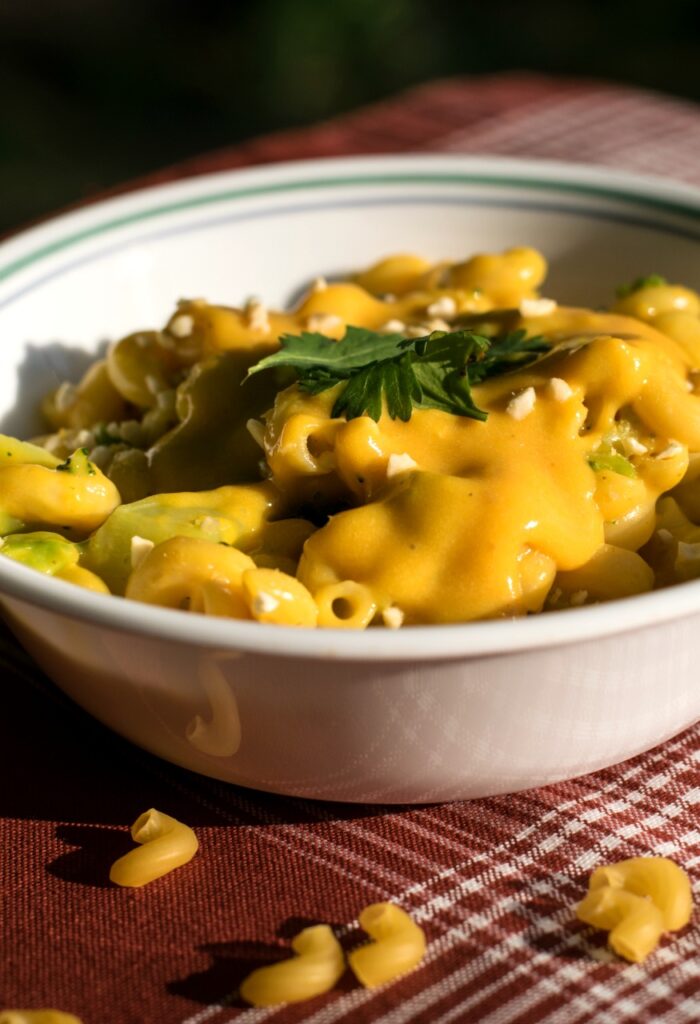
Veggies
It sounds a little strange, but you can get a good amount of protein from a veg-heavy diet. For example, a cup of cooked Brussels sprouts adds 4 grams of protein to your meal. A cup of sweet yellow corn is 5 grams. Leafy greens like spinach, watercress and bok choy are low in calories but have a high protein content per calorie.
Meat substitutes
This one is last on the list because faux meat products aren’t really the healthiest way to get your protein. But they can make the transition to a plant-based diet easier for meat lovers, and they are perfectly fine occasionally. Choose options with minimal ingredients, ample protein and reasonable amounts of saturated fat and sodium.
It’s not hard to get all the protein you need on a plant-based diet. In fact, you can do it deliciously, so I hope that I’ve given you a few good options.
